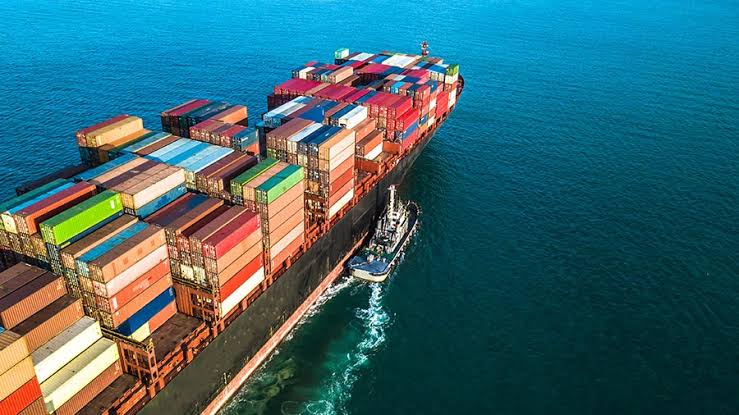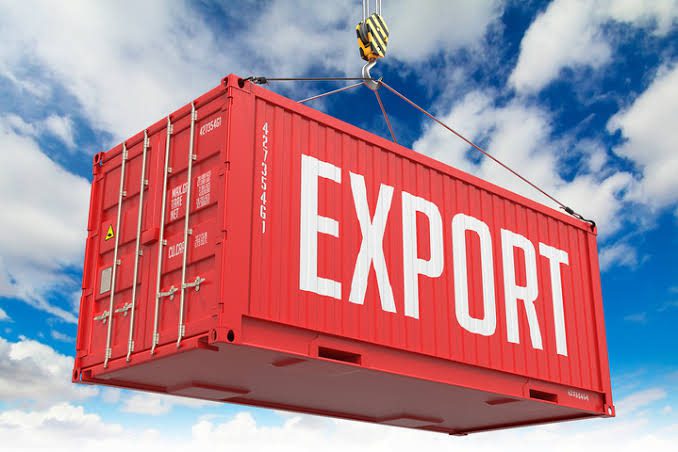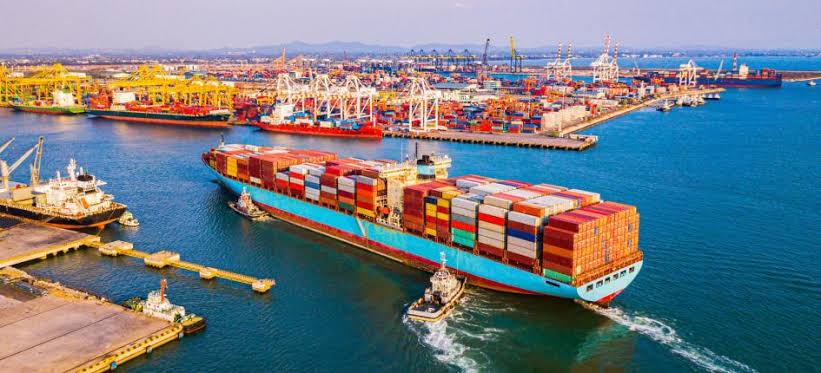Understanding how a nation can benefit from effectively exporting its goods is very important as it can guide any given country in producing exportable goods that can not only benefit the citizens through consumption and the utilization of the said goods but also can generate more income through the exportation of the goods.
The benefits of a nation from effectively exporting its goods help to stimulate economic growth by expanding market opportunities beyond domestic boundaries. By accessing global markets, businesses can scale up production, benefiting from economies of scale that reduce costs per unit and enhance profitability.
Increased exports lead to higher revenues for businesses, which in turn contribute to higher tax revenues for the government. These additional funds can be invested in public infrastructure, healthcare, education, and other critical areas, further promoting economic development. Moreover, export activities generate employment opportunities, particularly in sectors involved in manufacturing, logistics, marketing, and sales.
The demand for labor increases as businesses expand to meet international market requirements. This job creation not only reduces unemployment rates but also improves living standards as more individuals gain access to stable and well-paying jobs. Additionally, the skills and expertise developed through export-related activities contribute to a more skilled workforce, fostering human capital development.
Technological advancement is another significant benefit of effective exportation. Exposure to international markets and competition drives businesses to innovate and adopt new technologies to meet global standards and preferences.
This technological diffusion enhances productivity and efficiency within domestic industries. For instance, companies engaged in exporting often invest in advanced machinery, production techniques, and quality control processes to ensure their products meet international quality benchmarks.
These technological improvements can spill over to other sectors of the economy, boosting overall industrial growth and modernization. Effective exportation of goods also enhances a nation’s foreign exchange reserves, providing a buffer against economic shocks and currency fluctuations.
Foreign exchange earnings from exports enable a country to import essential goods and services that may not be produced domestically, such as advanced machinery, raw materials, and technology. This import capacity is crucial for sustaining industrial growth and maintaining the overall balance of trade.
Furthermore, a healthy foreign exchange reserve boosts investor confidence, attracting foreign direct investment (FDI) that further stimulates economic growth and development. Diversification of the economy is another key advantage of effective exportation.
Relying heavily on a few industries or commodities makes an economy vulnerable to external shocks, such as price fluctuations or changes in global demand. By expanding the range of exportable goods, a nation can reduce its economic vulnerability and achieve a more balanced and resilient economic structure.
Diversification helps in stabilizing income streams and fostering sustainable economic development by reducing dependency on single sectors or commodities. The goods that can easily be exported by a nation typically fall into categories where the country has a comparative advantage.
Comparative advantage means that a nation can produce certain goods more efficiently and at a lower cost than other countries. These goods vary widely depending on the country’s natural resources, labor force, technological expertise, and industrial capacity.
Agricultural products are often prime candidates for export, especially for countries with fertile land and favorable climate conditions. Nations like Brazil, Argentina, and the United States export significant quantities of soybeans, corn, and wheat. Similarly, tropical countries export fruits, coffee, tea, and cocoa, leveraging their unique growing conditions.
Agricultural exports benefit from global demand for food and beverages, which remains steady and often grows with population increases and rising incomes. Manufactured goods are another major category of exportable products. Countries with advanced manufacturing capabilities, such as Germany, Japan, and South Korea, export automobiles, machinery, electronics, and chemical products.
These nations benefit from high levels of industrialization, skilled labor, and technological innovation. For developing countries, manufactured exports might include textiles, garments, and basic machinery, where labor costs are lower, providing a competitive edge.
Natural resources and raw materials are also significant exports for many nations. Countries rich in minerals, oil, and gas, such as Saudi Arabia, Russia, and Australia, export these commodities extensively. The export of natural resources is often a primary source of foreign exchange for these nations, although it can also lead to economic dependency on global commodity prices.
Managing and investing resource revenues wisely is crucial for ensuring long-term economic stability and development. In recent years, services exports have gained prominence, particularly in the realms of information technology, tourism, and financial services.
Nations like India have become global leaders in IT services and software development, benefiting from a skilled and cost-effective labor force. The tourism industry, on the other hand, leverages a country’s cultural heritage, natural beauty, and hospitality services to attract international visitors, contributing significantly to foreign exchange earnings and job creation.
The benefits of a nation effectively exporting its goods extend to enhancing international trade relationships and geopolitical influence. By engaging in robust trade practices, countries can foster diplomatic and economic ties with trading partners, leading to greater cooperation and stability. Trade agreements and partnerships often arise from active participation in global markets, creating frameworks that facilitate smoother and more beneficial trade relations.
Read Also: How to Find the Best Marketing Jobs Around You
How Can a Nation Effectively Exporting Its Goods Improve Trade Balance

The exportation of goods forms the backbone of a nation’s economic strategy, influencing its trade balance, which measures the difference between the value of exports and imports. Achieving a positive trade balance, where exports exceed imports, is crucial for economic stability and growth. This article explores how a nation effectively exporting its goods enhances a nation’s trade balance and its broader economic implications.
1. Generation of Foreign Exchange Earnings: One of the primary benefits of a nation effectively exporting its goods is the generation of foreign exchange earnings. When a country sells its products abroad, it receives payments in foreign currencies.
These earnings are essential for financing imports of goods and services that are not domestically produced or are more costly to manufacture locally. A consistent inflow of foreign exchange ensures that a country can meet its import needs without depleting its foreign reserves, thereby maintaining economic stability.
2. Contribution to Gross Domestic Product (GDP) Growth: A nation effectively exporting its goods significantly contributes to a nation’s gross domestic product (GDP). Increased export activity stimulates higher production levels across domestic industries, leading to economic growth.
Industries expand their capacities to meet international demand, investing in new technologies, infrastructure, and skilled labor. This investment enhances productivity and overall economic output, signaling a healthy economy and attracting foreign direct investment (FDI), which further supports economic growth.
3. Job Creation and Employment Opportunities: A nation effectively exporting its goods fosters job creation across various sectors of the economy. Industries directly involved in producing exportable goods, such as manufacturing, agriculture, and technology, experience increased demand. This demand necessitates expansion and hiring within these industries.
Additionally, supporting sectors like logistics, transportation, finance, and services also benefit from export-related activities. The cumulative effect is a reduction in unemployment rates, higher household incomes, and increased consumer spending, all of which contribute to economic stability and growth.
4. Enhancement of Global Competitiveness: Engaging in international trade enhances a nation’s global competitiveness. A nation effectively exporting its goods exposes domestic companies to global markets and competition, driving them to innovate and improve their products to meet international standards.
This competitive pressure encourages technological advancements, efficiency improvements, and quality enhancements in domestic industries. As companies become more competitive, they expand their market share internationally, leading to sustained export growth and higher export earnings.
5. Diversification of Economic Base: Relying solely on the domestic market can expose a nation to economic risks, such as local economic downturns or market saturation. A nation effectively exporting its goods diversifies a country’s economic base by accessing global markets.
This diversification spreads economic risk and stabilizes growth by reducing dependency on a single market or a limited range of products. Small and developing economies, in particular, benefit from export diversification as it provides access to larger, more dynamic international markets, mitigating the impact of domestic economic challenges.
6. Economies of Scale and Cost Efficiency: A nation effectively exporting its goods allows firms to achieve economies of scale, where production becomes more efficient as output increases. Increased production volumes for export purposes lead to lower per-unit costs through improved economies of scale and resource utilization.
These cost efficiencies enhance profitability and make products more competitive both domestically and internationally. Achieving economies of scale enables domestic industries to sustain higher production levels, increase export volumes, and contribute positively to the trade balance.
7. Role of Government Policies and Trade Agreements: Government policies and trade agreements play a crucial role in facilitating effective exportation. Governments can implement supportive policies such as export subsidies, tax incentives, and export credits to encourage domestic industries to expand their export activities.
Trade agreements with other nations can reduce tariffs, eliminate trade barriers, and create a conducive environment for export growth. These policies and agreements provide exporters with greater market access, competitive advantages, and opportunities to compete on a level playing field in international markets.
8. Strengthening of the National Currency: A positive trade balance resulting from a nation effectively exporting its goods strengthens a nation’s currency. When a country exports more than it imports, there is a higher demand for its currency as foreign buyers convert their currencies to pay for the exports.
This increased demand can lead to currency appreciation, making imports cheaper and contributing to a lower trade deficit. A strong national currency also helps control inflation by reducing the cost of imported goods and services, contributing to overall economic stability.
9. Reinvestment in Critical Sectors: The revenue generated from exports can be reinvested in critical sectors of the economy, driving further development. Governments often allocate export earnings to fund infrastructure projects, improve social services, and invest in education and healthcare.
These investments enhance the overall economic environment, making the country more attractive to both domestic and foreign investors. Improved infrastructure, a skilled workforce, and better healthcare services create a more productive economy, further boosting export potential and contributing to a positive trade balance.
10. Diplomatic and Economic Relations: A nation effectively exporting its goods fosters stronger diplomatic and economic ties between countries. Trade relationships build mutual dependencies and promote international cooperation.
Strong trade partnerships can lead to more stable and peaceful international relations, as countries with intertwined economic interests are more likely to collaborate on global issues such as security, environmental sustainability, and economic development. These diplomatic benefits further enhance the stability and resilience of a nation’s economy.
Read Also: Guide on How to Use the Warframe Market Effectively
What Are the Best Strategies for a Nation to Benefit from Effectively Exporting Its Goods?

A nation effectively exporting its goods is a strategic endeavor that requires careful planning, market understanding, and proactive engagement. Nations and businesses alike employ various strategies to maximize their export potential and navigate the complexities of international trade.These strategies encompass market research, product adaptation, distribution channels, marketing tactics, financial considerations, and regulatory compliance.
1. Market Research and Analysis: One of the foundational strategies for a nation to benefit from effectively exporting its goods is conducting thorough market research and analysis. This involves understanding target markets, consumer preferences, purchasing behaviors, competitive landscape, and regulatory requirements.
Market research helps exporters identify viable opportunities and assess market demand for their products or services. It provides valuable insights into market trends, pricing strategies, distribution channels, and potential barriers to entry.
By conducting comprehensive market research, exporters can tailor their products or services to meet specific market needs and preferences. This customization increases the likelihood of acceptance and success in foreign markets. Furthermore, understanding cultural nuances, language differences, and local business practices is essential for building strong relationships and navigating potential challenges in international markets.
2. Product Adaptation and Localization: Adapting products or services to suit the preferences and requirements of target markets is another critical strategy for a nation to benefit from effectively exporting its goods. This may involve modifying product features, packaging, branding, or even pricing strategies to align with local market preferences and regulations.
Product adaptation demonstrates responsiveness to customer needs and enhances product relevance and appeal in foreign markets. Localization goes beyond product adaptation and includes adjusting marketing messages, promotional materials, and customer support to resonate with local audiences.
Effective localization builds brand trust and credibility, fostering stronger connections with customers and increasing market acceptance. Companies that effectively adapt and localize their offerings are better positioned to compete and succeed in diverse global markets.
3. Selection of Optimal Distribution Channels: Choosing the right distribution channels is essential for efficiently reaching target customers and maximizing market penetration. Exporters must evaluate various distribution options, including direct sales, agents, distributors, e-commerce platforms, and partnerships with local businesses.
Each distribution channel offers distinct advantages in terms of market reach, customer access, logistics capabilities, and cost-effectiveness. The selection of distribution channels should align with market characteristics, product complexity, and target customer preferences.
For example, high-value or specialized products may benefit from direct sales or partnerships with distributors who possess industry expertise and established networks. In contrast, consumer goods with broad appeal may leverage e-commerce platforms to reach a wider audience quickly and cost-effectively.
4. Effective Marketing and Promotion Strategies: Implementing effective marketing and promotion strategies is essential for creating awareness, generating demand, and building brand presence in foreign markets. Exporters should develop localized marketing campaigns that resonate with target audiences while aligning with overall brand messaging and positioning.
Digital marketing tools, such as social media, search engine optimization (SEO), and online advertising, can be particularly effective in reaching global consumers. Collaborating with local influencers, industry associations, or trade organizations can enhance credibility and facilitate market entry.
Participating in trade shows, exhibitions, and networking events provides valuable opportunities for face-to-face engagement with potential customers and partners. Effective marketing strategies not only drive sales but also strengthen brand reputation and competitive advantage in international markets.
5. Financial Planning and Risk Management: Financial planning and risk management are critical considerations for a nation to succeed in effectively exporting its goods. Exporters must assess financial resources, budget effectively for market entry and expansion, and manage currency fluctuations and exchange rate risks. Developing pricing strategies that reflect market conditions, competitive dynamics, and cost structures is essential for profitability and sustainable growth.
Exporters should also explore financial instruments such as export financing, letters of credit, and trade credit insurance to mitigate payment risks and ensure timely receipt of payments. Building strong relationships with financial institutions and trade finance providers can provide access to capital and liquidity necessary for financing export operations and managing cash flow effectively.
6. Compliance with Regulatory and Legal Requirements: Navigating regulatory and legal requirements is a fundamental aspect of a nation to effectively exporting its goods internationally. Exporters must comply with import/export regulations, customs procedures, product standards, labeling requirements, and intellectual property rights protection in target markets. Failure to adhere to regulatory requirements can result in delays, fines, or even market entry barriers.
Engaging legal counsel or regulatory experts to navigate complex legal frameworks and obtain necessary certifications or licenses is advisable. Establishing a robust compliance management system ensures adherence to regulations and minimizes legal risks associated with international trade. Proactively monitoring changes in regulatory environments and adapting strategies accordingly helps exporters maintain compliance and sustain market access.
7. Building Strategic Partnerships and Alliances: Building strategic partnerships and alliances is instrumental in expanding market reach, accessing new opportunities, and enhancing competitiveness in foreign markets. Collaborating with local distributors, agents, or joint venture partners can provide valuable market insights, local market knowledge, and logistical support. Strategic alliances with industry associations, trade chambers, or government agencies can facilitate market entry and navigate regulatory complexities.
Partnerships also enable shared resources, capabilities, and risks, allowing exporters to leverage strengths and overcome market entry barriers more effectively. Establishing long-term relationships based on trust, mutual benefit, and shared objectives fosters sustainable growth and competitive advantage in global markets.
8. Continuous Evaluation and Adaptation: Continuous evaluation and adaptation of export strategies are essential for responding to market dynamics, competitive pressures, and evolving customer preferences. Exporters should monitor key performance indicators (KPIs), sales metrics, and customer feedback to assess strategy effectiveness and identify areas for improvement. Regular market research and competitive analysis provide insights into emerging trends, competitive threats, and new opportunities.
By staying agile and responsive to market changes, exporters can adjust product offerings, marketing strategies, pricing tactics, and distribution channels to maintain relevance and competitiveness. Flexibility and willingness to innovate are crucial for sustaining long-term success and achieving growth objectives in dynamic global markets.
What Challenges and Pitfalls Should Be Avoided for a Nation to Benefit from Effectively Exporting Its Goods?

For a nation to benefit fully from effectively exporting its goods, it must navigate a complex landscape of challenges and pitfalls. While the advantages of exportation are substantial, ranging from economic growth to enhanced global standing, these benefits can be undermined by various obstacles. Understanding and mitigating these challenges is crucial for sustained and successful participation in global trade.
1. Over-Reliance on Specific Markets or Products
One of the most significant risks is over-reliance on specific export markets or products. If a country becomes too dependent on a single commodity or trading partner, it becomes vulnerable to market fluctuations, price drops, or political instability in the importing country. T
his dependency can lead to economic instability if demand decreases or if diplomatic relations sour. Diversifying export markets and product lines can mitigate this risk, ensuring that economic shocks in one area do not devastate the entire economy.
2. Lack of Diversification
Closely related to market reliance is the issue of lack of diversification in the types of goods exported. Nations that rely heavily on raw materials or low-value-added products may find themselves at a disadvantage compared to countries exporting finished goods.
Raw materials often experience volatile pricing and can be subject to international commodity market swings. By moving up the value chain—processing raw materials into finished products—countries can increase their export earnings and stabilize their economies.
3. Quality Standards and Compliance
Meeting international quality standards and compliance requirements is another critical challenge. Export markets, especially in developed countries, often have stringent regulations and standards for products, ranging from agricultural goods to manufactured items.
Failure to meet these standards can result in rejected shipments, lost revenue, and damaged reputations. Investing in quality control, certification processes, and understanding the regulatory landscapes of target markets is essential for maintaining export viability.
4. Infrastructure and Logistics
A nation effectively exporting its goods depends heavily on robust infrastructure and efficient logistics. Inadequate transportation networks, poor port facilities, and inefficient customs processes can all impede the ability to move goods quickly and cost-effectively.
These bottlenecks can erode competitiveness by increasing costs and delaying delivery times. Governments must prioritize infrastructure development, streamline customs procedures, and adopt advanced logistics technologies to ensure smooth and efficient export operations.
5. Currency Fluctuations
Currency volatility poses a significant risk to exporters. Fluctuations in exchange rates can impact the competitiveness of goods in the global market. A sudden appreciation of the domestic currency can make exports more expensive and less attractive to foreign buyers, while depreciation can increase import costs for essential inputs. Implementing hedging strategies and engaging in financial planning can help mitigate the impact of currency fluctuations on export revenues.
6. Trade Barriers and Protectionism
Navigating trade barriers and protectionist policies is a perennial challenge for exporters. Tariffs, quotas, and non-tariff barriers such as stringent regulations or biased standards can restrict market access and reduce profitability.
Engaging in bilateral and multilateral trade agreements can help lower these barriers. Additionally, staying informed about global trade policies and lobbying for fair trade practices through international forums and organizations is crucial.
7. Political and Economic Instability
Political and economic instability in both the exporting and importing countries can significantly disrupt trade flows. In the exporting country, political instability can lead to inconsistent trade policies, corruption, and governance issues that undermine export activities.
In importing countries, economic downturns or political unrest can reduce demand for imported goods. Maintaining stable governance, fostering strong international relations, and creating adaptable business strategies can help mitigate these risks.
8. Environmental and Social Considerations
Modern consumers and international markets are increasingly concerned with the environmental and social impact of products. Nations that fail to adhere to sustainable practices or that have poor labor standards may face boycotts, sanctions, or loss of market share. Implementing and adhering to sustainable production practices, ensuring fair labor conditions, and obtaining relevant certifications can enhance a country’s reputation and market access.
9. Intellectual Property Protection
For nations exporting high-tech or proprietary products, protecting intellectual property (IP) is critical. Weak IP laws or enforcement can lead to the theft of innovations, eroding competitive advantage and profitability. Strengthening IP laws, participating in international IP agreements, and educating businesses about IP protection strategies are necessary steps to safeguard valuable intellectual property.
10. Export Financing and Support
Small and medium-sized enterprises (SMEs) often face challenges in obtaining the necessary financing and support to engage in export activities. Lack of access to capital, insufficient knowledge of international markets, and limited resources for marketing and compliance can all hinder export potential. Governments can play a crucial role by providing export financing programs, offering training and resources, and facilitating access to international markets through trade missions and expos.
11. Adaptability to Market Changes
Global markets are dynamic and ever-changing, influenced by trends, technological advancements, and shifts in consumer preferences. Nations and businesses that fail to adapt to these changes may find their export products becoming obsolete or less competitive. Continuous market research, innovation, and flexibility in production processes are essential to remain relevant and competitive in the global market.
12. Cultural and Language Barriers
Understanding and bridging cultural and language differences is vital for successful international trade. Miscommunications or cultural misunderstandings can lead to failed negotiations, marketing missteps, and lost business opportunities. Investing in cultural training, employing multilingual staff, and building strong, culturally aware relationships with international partners can help overcome these barriers.
In conclusion, while the benefits of a nation to effectively exporting its goods are substantial, a nation must navigate a range of challenges to realize these advantages fully. From avoiding over-reliance on specific markets and products to ensuring robust infrastructure and compliance with international standards, each aspect requires careful planning and strategic investment.
Addressing currency fluctuations, trade barriers, political stability, environmental considerations, intellectual property protection, and providing adequate support to exporters are all crucial for fostering a successful export economy. By proactively managing these challenges, nations can harness the full potential of their export activities, driving economic growth and securing their position in the global marketplace.
Read Also: The Importance of Ethics in Business






